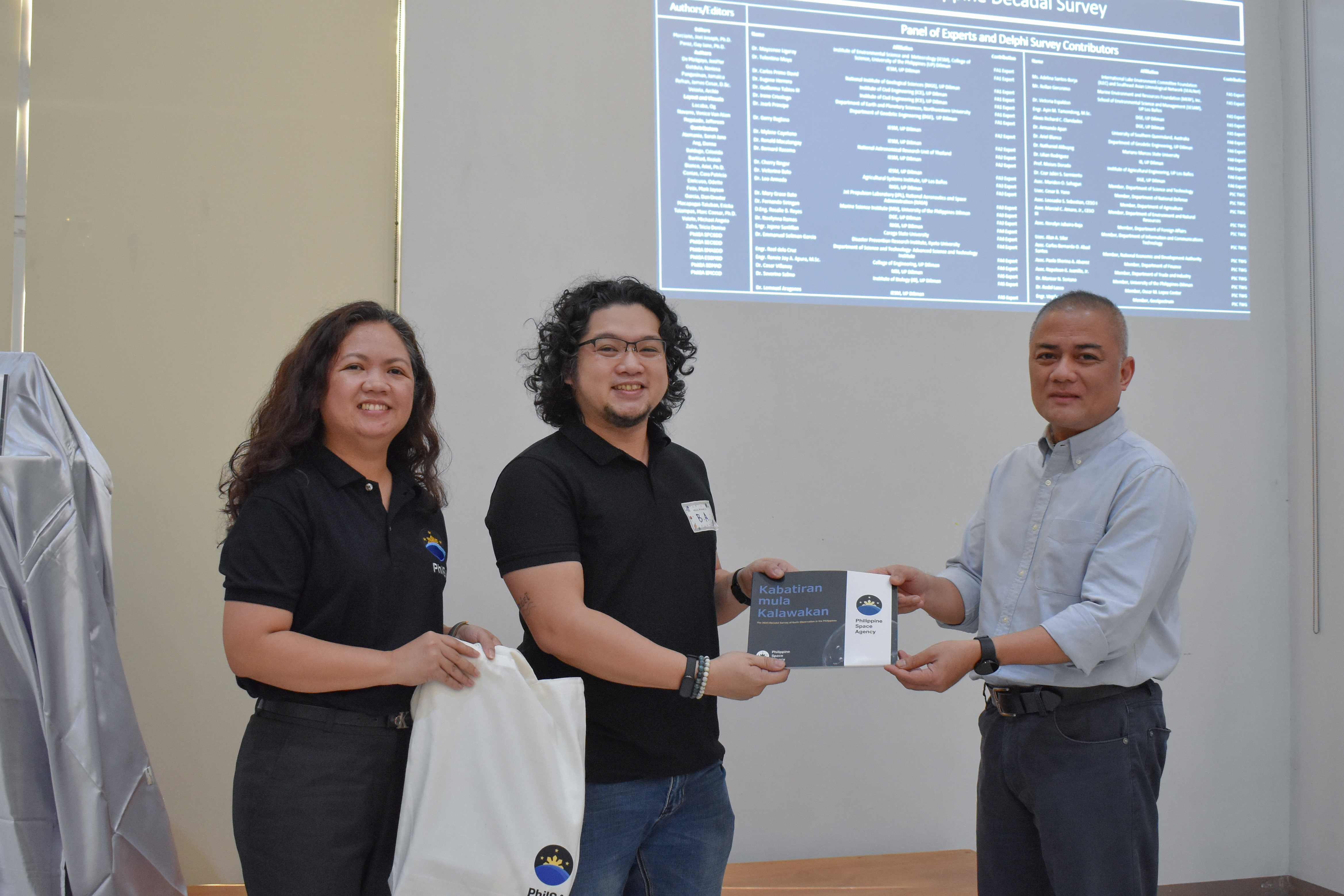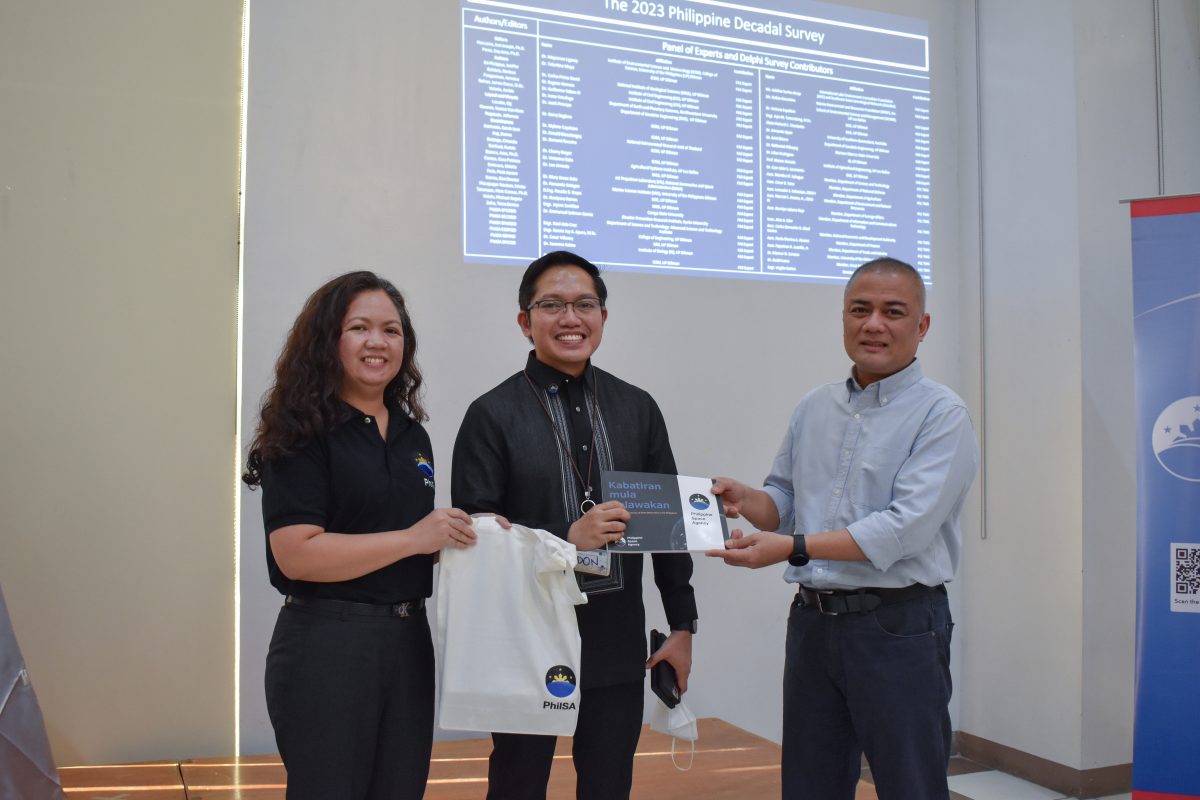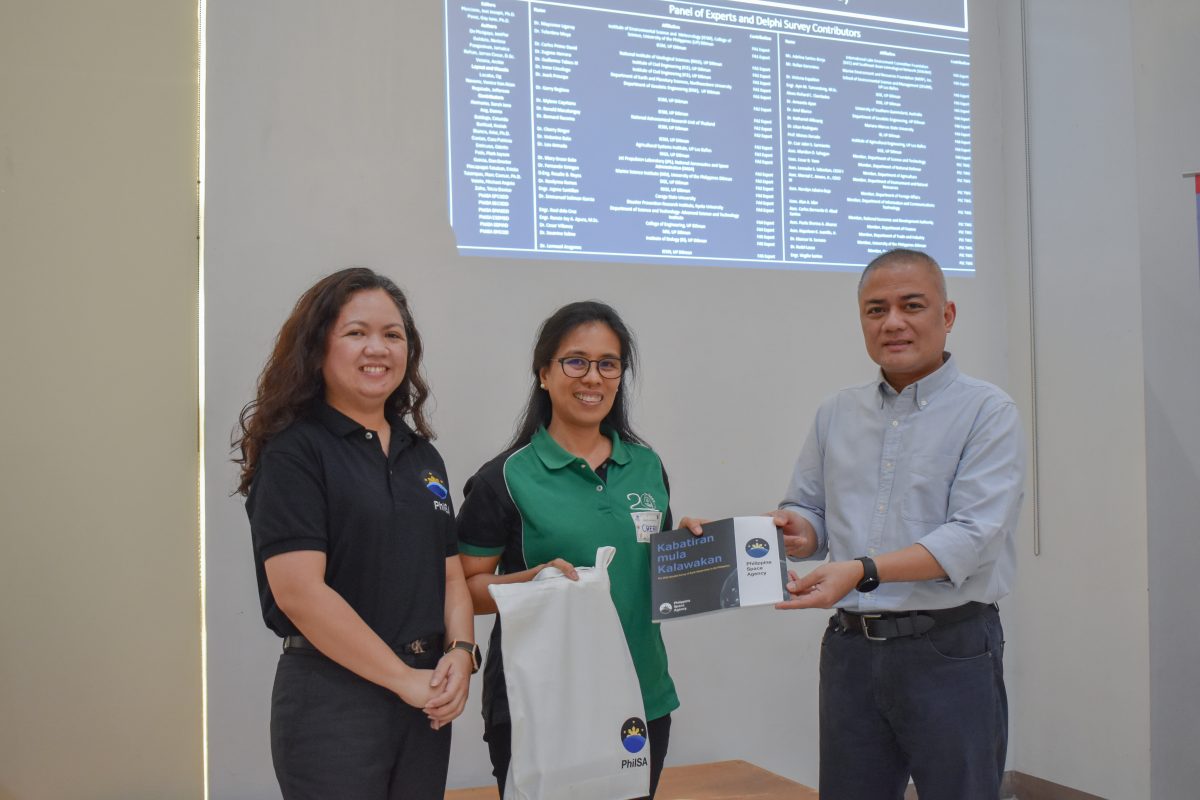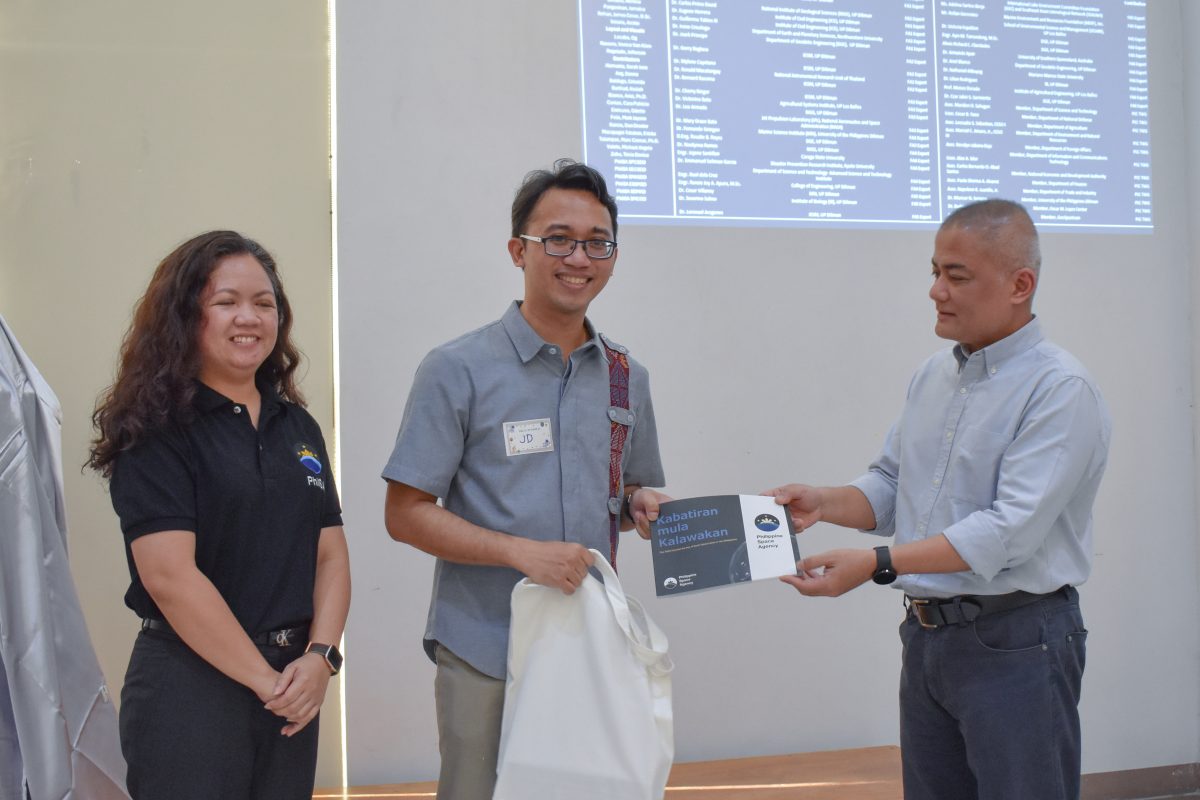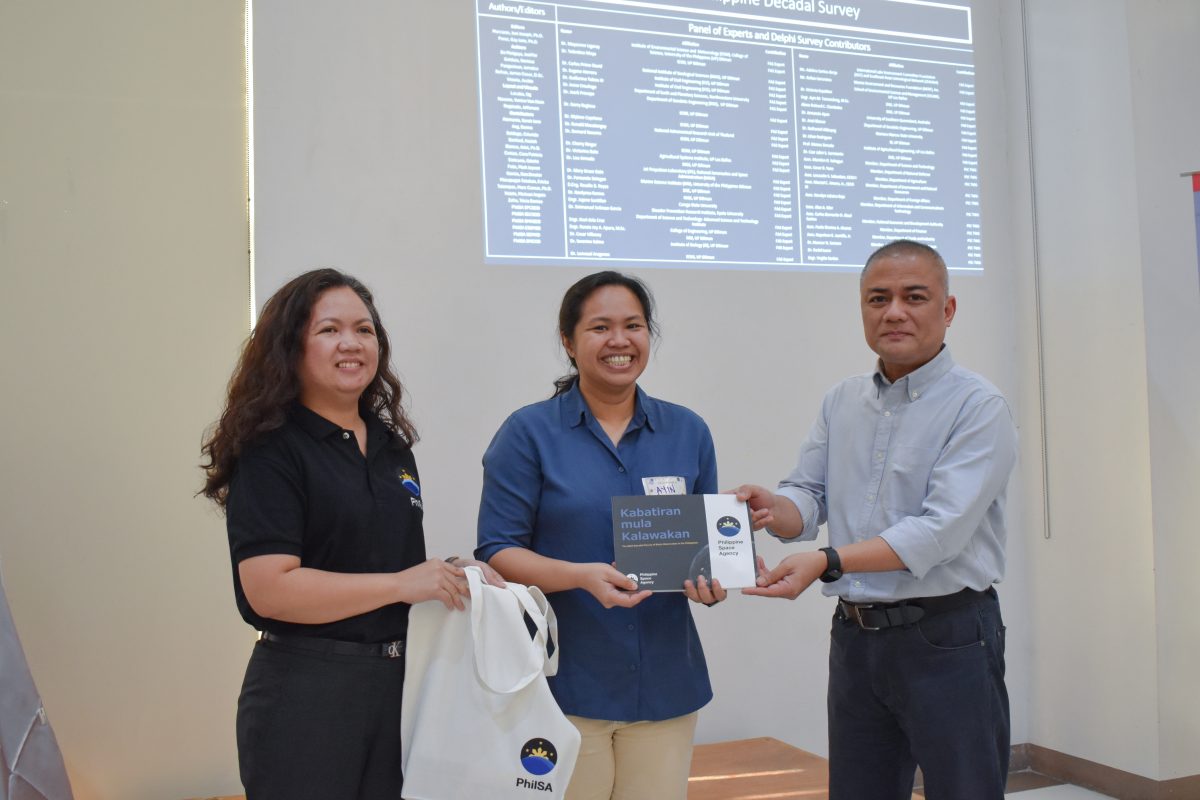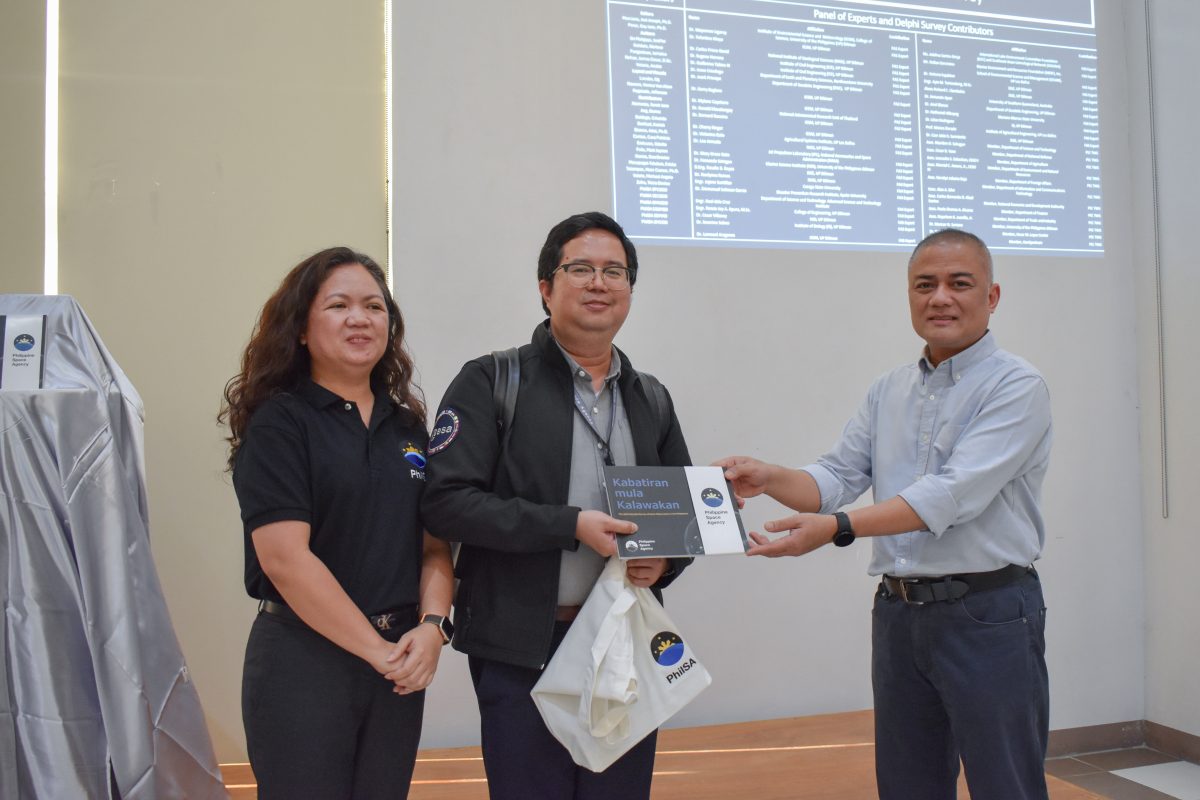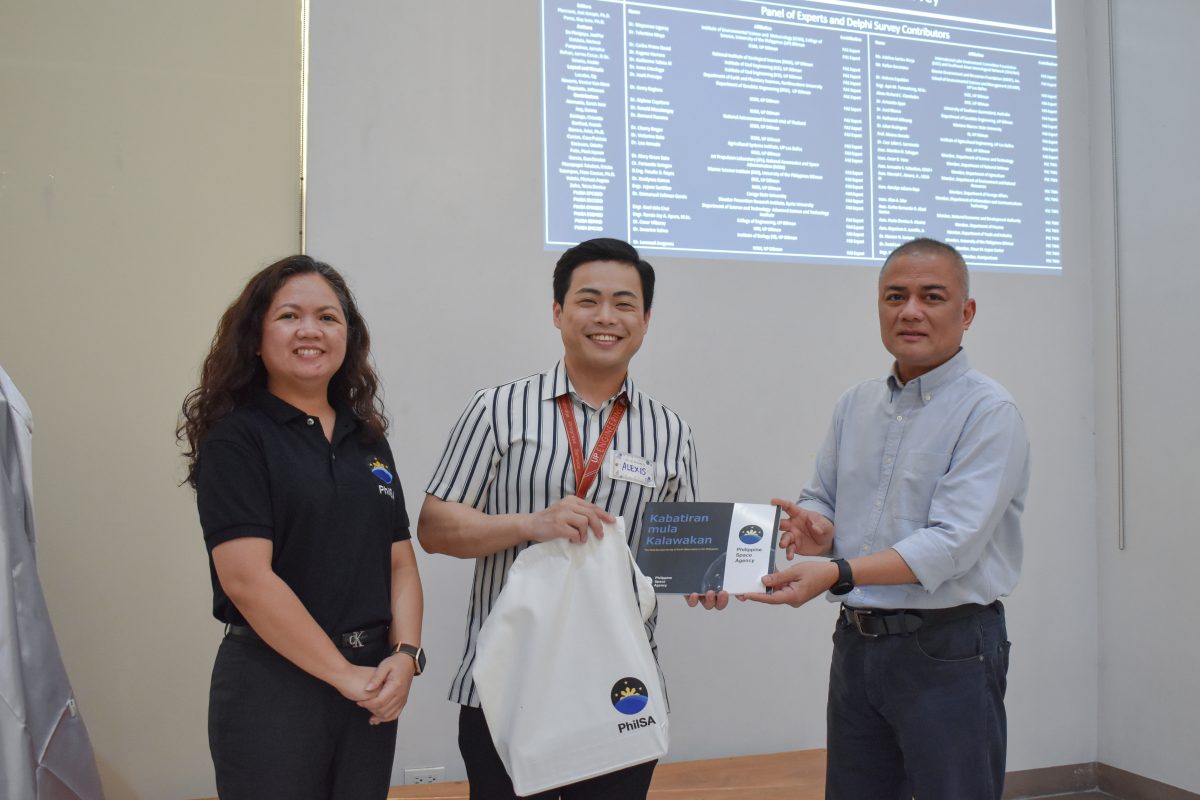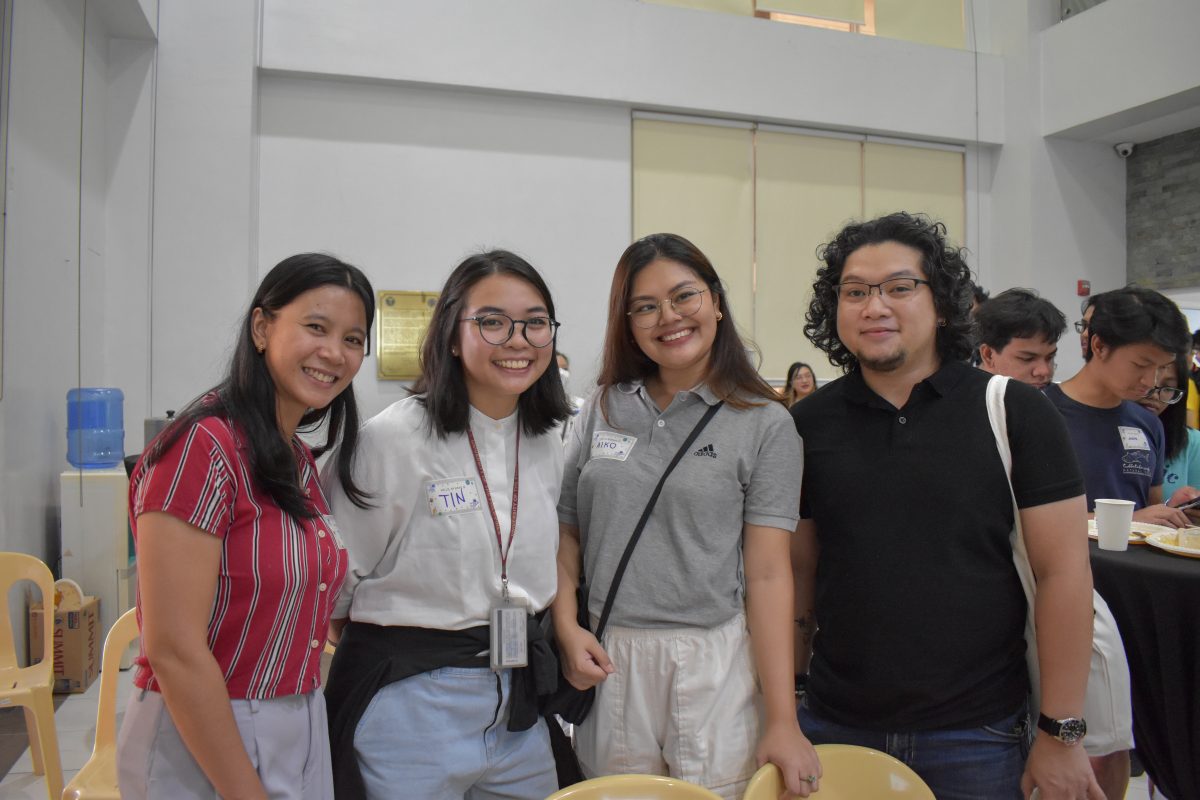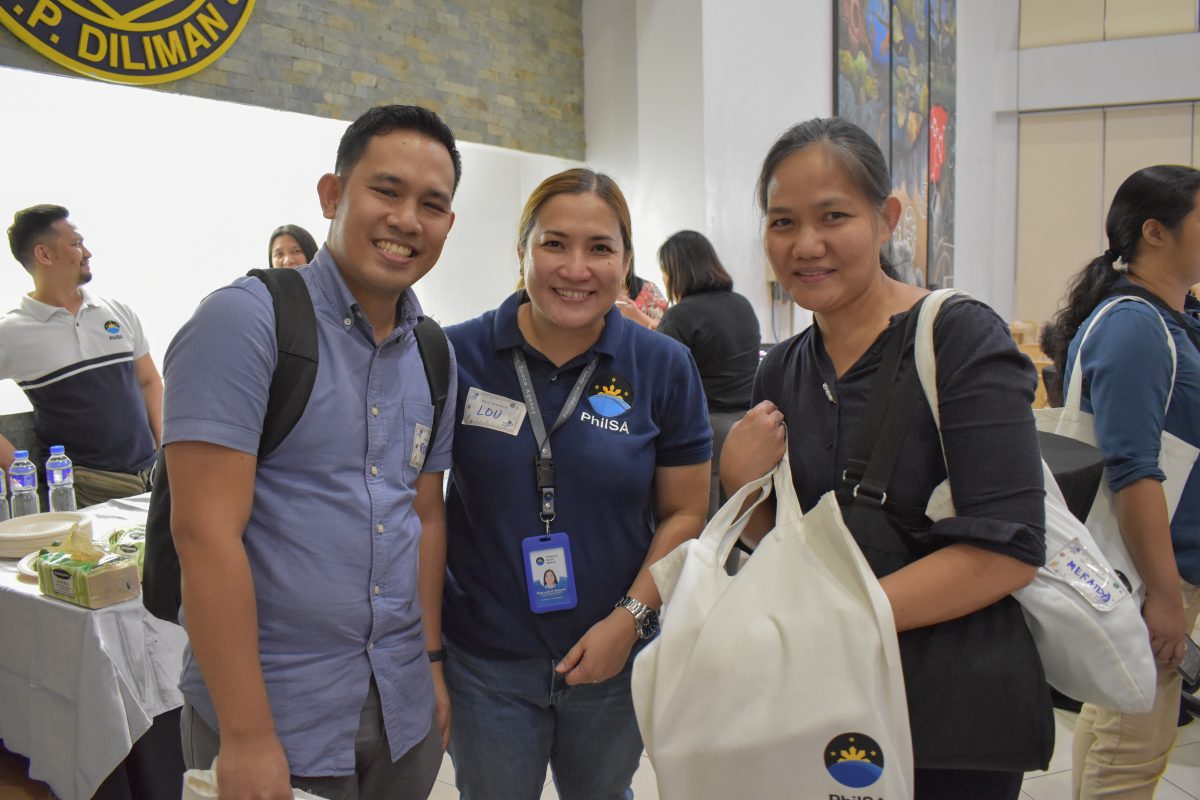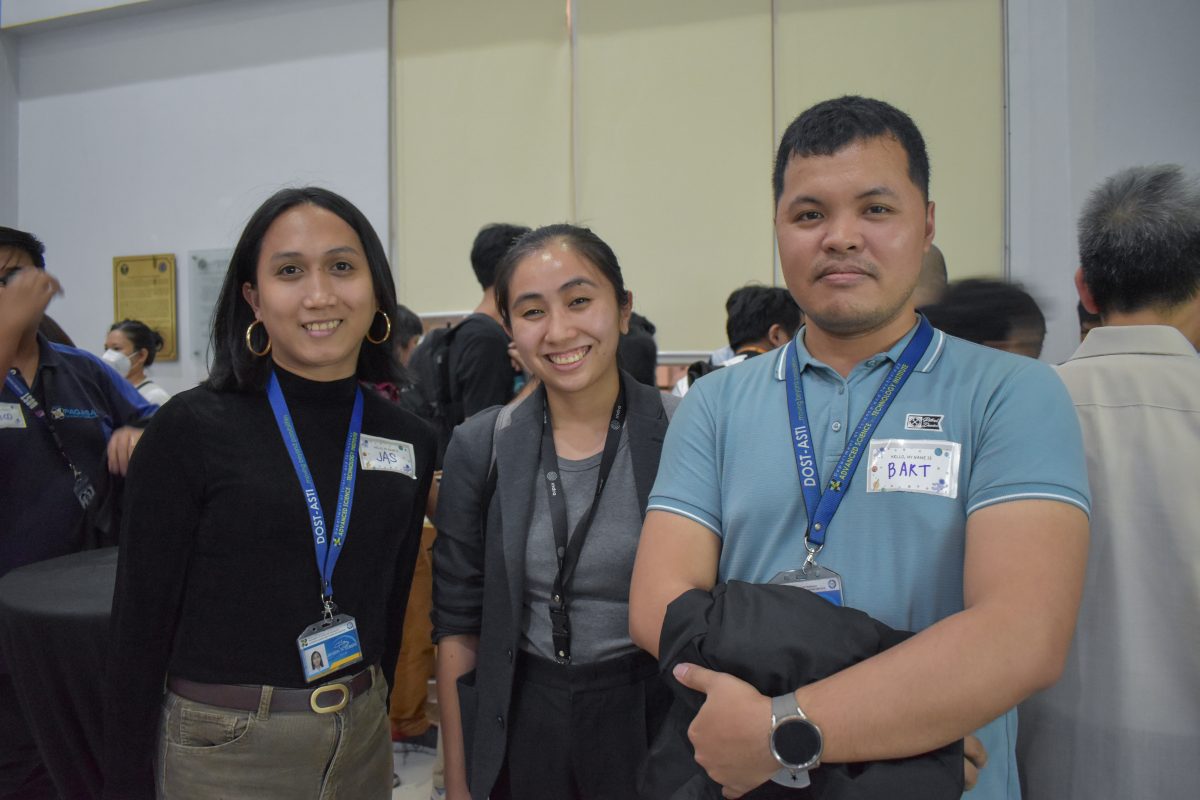The Philippine Space Agency (PhilSA) officially launched the “Kabatiran mula Kalawakan: The 2023 Decadal Survey of Earth Observation in the Philippines” book during the second Space Ecosystem Corps (SPOC) session at the College of Science Administrative Building, University of the Philippines Diliman, Quezon City on 29 February 2024.
The 2023 Decadal Survey is a synthesis of the inputs from the science community and stakeholders, showing the most important challenges in Earth observation (EO) for the Philippines that may persist or arise in this decade, along with corresponding objectives and available satellite solutions.
It also assessed the status of EO needs and utilization in the country, defined and prioritized key challenges that may be addressed by space-based technology, provided a basis for determining priority missions that will address most important challenges, and generated recommendations for integrated and sustainable conduct of space-based EO, and data utilization and mobilization.
Carried out in two phases, the six (6) focus areas were identified during the first phase by engaging the experts from the scientific community to define the key components of EO activities and their corresponding challenges and objectives. The focus areas covered the following: Hydrologic Cycles and Climate Studies; Weather, Air Quality and Atmospheric Processes; Earth Surface and Interior: Dynamics and Processes; Hazards and Disaster Risk, Reduction and Management; Aquatic Ecosystems and Water Resources Management; Terrestrial Ecosystems and Land Resources Management.
Phase 2 involved representatives of the academe, government agencies, non-government agencies (NGOs), and private institutions to rank the identified challenges and objectives.
Members of the Philippine Space Council (PSC) also participated in a Delphi Survey aimed to identify key challenges and objectives of the decade and provide information on space-related activities and capabilities currently implemented by their agencies.
The results of the study will help shape the direction of scientific research and possible funding priorities for the decade, along with feeding the development of PhilSA’s 10-year Space Mission and Technology Roadmap and the Data Mobilization and Utilization Plan.
The Decadal Survey was first initiated in 2020 through the Advanced Satellite Development and Know-How Transfer for the Philippines Project (ASP) under the Space Technology and Application Mastery, Innovation and Advancement (STAMINA4Space) Program, which was then continued by PhilSA upon its establishment.

PhilSA Senior Science Research Specialist Ms. Jeniffer D. De Maligaya presents the highlights of the Decadal Survey.
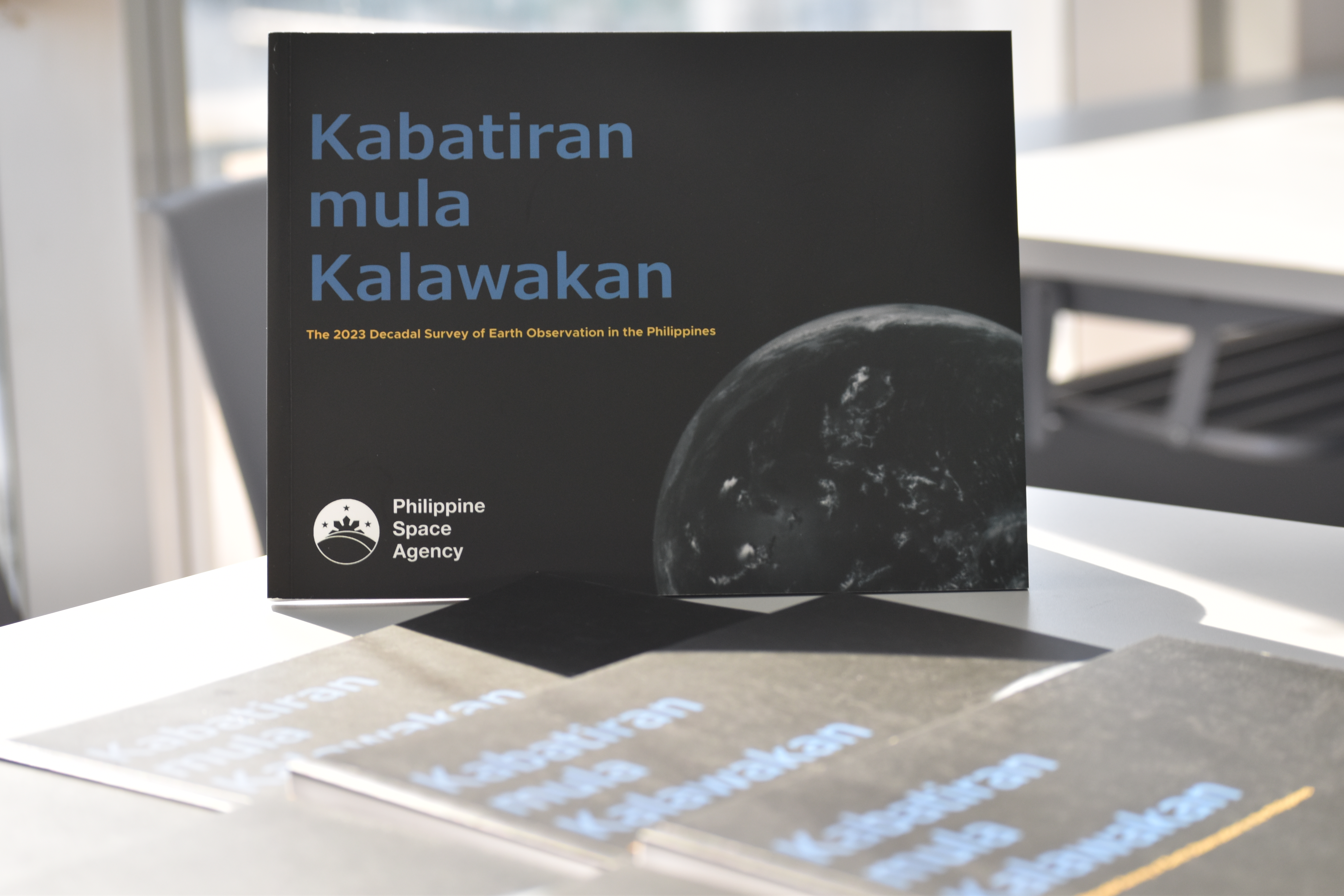
Read the 2023 Decadal Survey here: https://philsa.gov.ph/kabatiran-mula-kalawakan-the-2023-decadal-survey-of-earth-observation-in-the-philippines
A platform for exchanging information and best practices
Following the launch of the 2023 Decadal Survey, international members of SPOC delivered presentations on the various space science and technology applications (SSTA) utilized in the study, highlighting the culture of collaboration that SPOC aims to build in its far-reaching community.

NASA Goddard Space Flight Center Earth Sciences Division Senior Scientist Emeritus Dr. Josefino Comiso discuss the seasonal and interannual variability of rainfall and climate types.

Hokkaido University Department of Earth and Planetary Sciences Professor Yukihiro Takahashi presents the different roles of microsatellites in business and academic research.

European Space Agency (ESA) Earth Observation Applications Specialist Mr. Stefano La Terra Bella discusses the ESA-PhilSA cooperation on Earth Observation satellites, particularly the National Copernicus Capacity Support Action Programme for the Philippines (CopPhil).
University of the Philippines (UP) Diliman College of Science Dean Dr. Giovanni Tapang and Department of Finance (DOF) Assistant Secretary Glenda Rumohr also joined the second SPOC assembly.

PhilSA Director General Dr. Joel Joseph S. Marciano, Jr. welcomes everyone to the second SPOC session and puts emphasis on the partnerships that have made the event possible.

University of the Philippines (UP) Diliman College of Science Dean Dr. Giovanni Tapang shares his enthusiastic support for the Philippine Space Agency and for holding the second SPOC meeting in the college.

PhilSA Deputy Director General for Space Science and Technology Dr. Gay Jane P. Perez explains the purpose of the decadal survey.

PhilSA Deputy Director General for Space Operations, Infrastructure, and Industry Mr. Denis F. Villorente shares his enthusiasm for the continuation of the bi-monthly SPOC meetings and the achievements that the community will have in the future.

(L-R) PhilSA Deputy Director General for Space Science and Technology Dr. Gay Jane P. Perez, NASA Goddard Space Flight Center Earth Sciences Division Senior Scientist Emeritus Dr. Josefino Comiso, European Space Agency (ESA) Earth Observation Applications Specialist Mr. Stefano La Terra Bella, PhilSA Director General Dr. Joel Joseph S. Marciano, Jr., Hokkaido University Department of Earth and Planetary Sciences Professor Yukihiro Takahashi, and PhilSA Deputy Director General for Space Operations, Infrastructure, and Industry Mr. Denis F. Villorente.
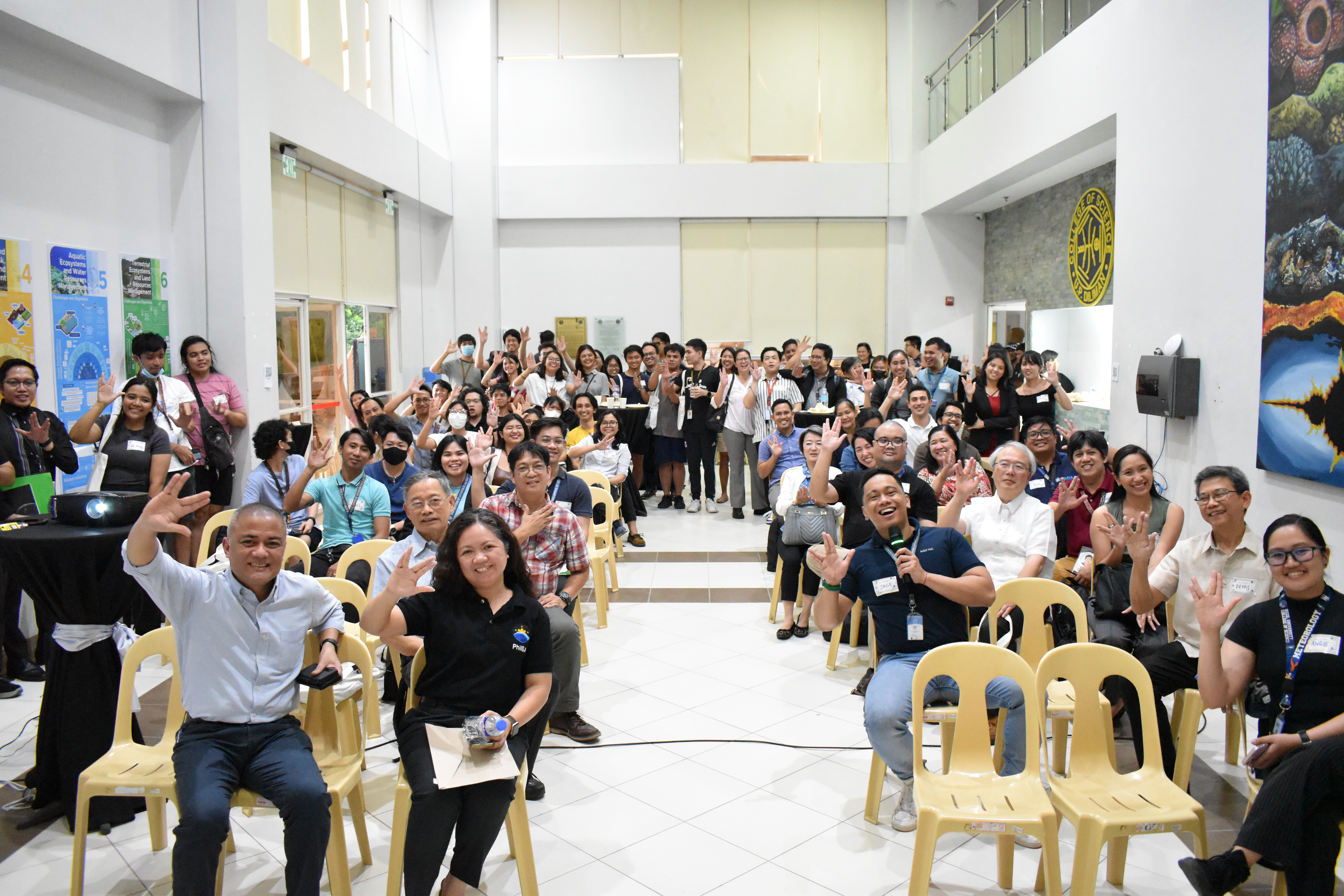
Attendees of the 2nd Space Ecosystem Corps (SPOC) session




